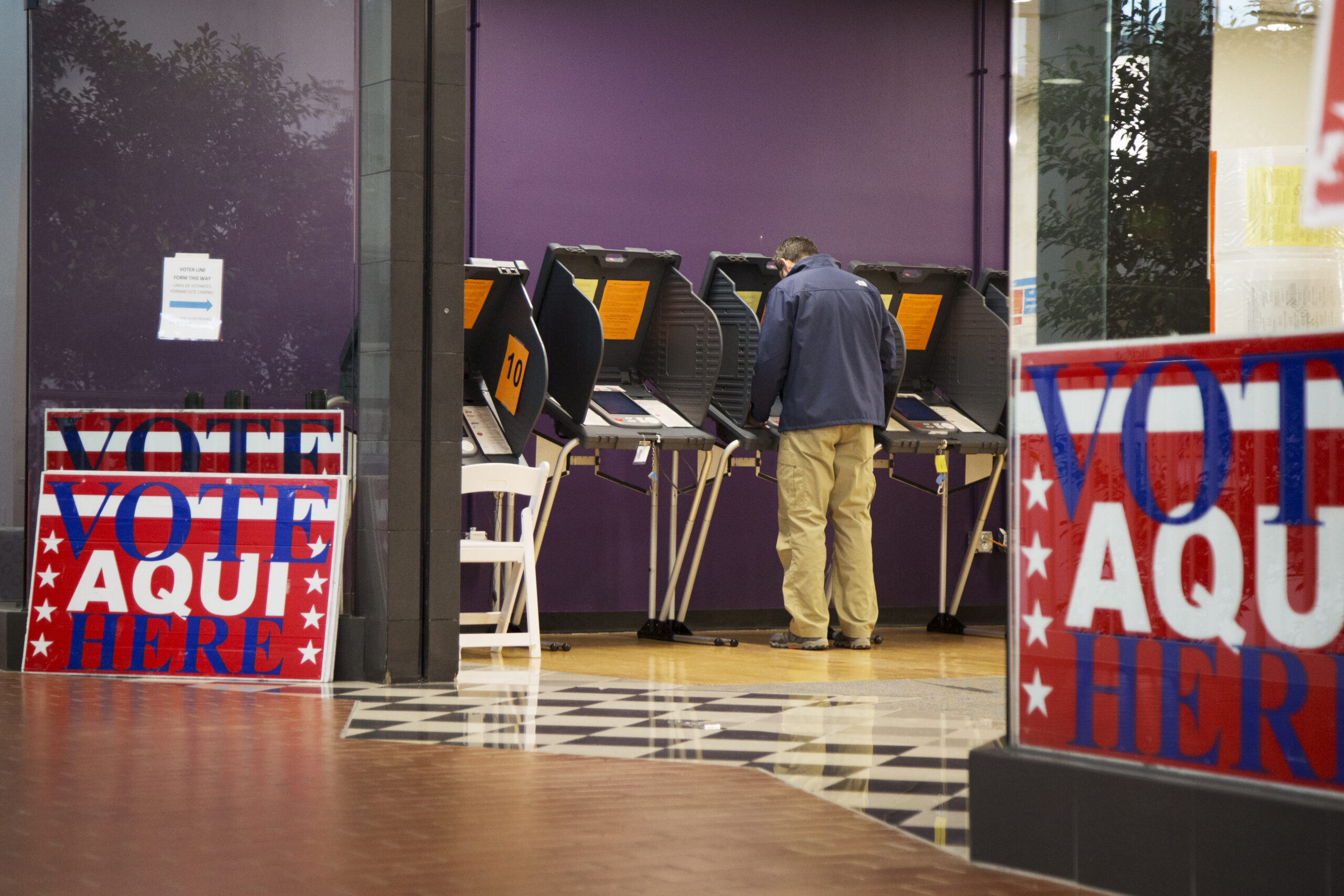Early voting is currently underway for the May 6 election in Texas.
These spring elections don’t tend to get the kind of turnout midterms or presidential election cycles do, but locally, they do carry a lot of weight and just a few votes can make all the difference.
Texas Standard checked in with reporters across the state to go over some of the most important items and races on local ballots.
Austin
Crime and justice reporter for KUT, Andrew Weber, provided insight on two police oversight propositions on the ballot in the Texas capital city. These ballot items share nearly identical language, but they’re backed by two distinct groups with very different opinions on the matter.
Prop A, backed by the progressive-leaning group Equity Action, aims to empower the Office of Police Oversight and allow it to field anonymous complaints and be more involved in investigations dealing with allegations of police misconduct.
Prop B, which Weber says is backed almost entirely by the police union in Austin, would essentially “claw back” the office’s ability to investigate such allegations and claims.
And while a “yes” vote for one could essentially negate the other, Weber said it’s difficult to say what would happen if both propositions pass.
“In the event that voters approve both of these propositions, it’s kind of unclear what it would mean for the city’s charter, because they’re amending the charter, which is essentially a constitution for a city,” Weber said.
Rio Grande Valley
Texas Public Radio’s Gaige Davila says a mayoral race in the city of Brownsville between four candidates is backdropped by a controversial decision by the city’s Public Utilities Board.
“So essentially, the Public Utilities Board raised utility rates to pay for a power plant from the Tenaska Energy Company,” Davila said. “But the power plant never happened. But Brownsville residents still paid over $118 million for this project. So now candidates are trying to figure out how they’ll best return some of that money and make sure that this doesn’t happen again.”
Two candidates, at-large city commissioner John Cowen, and former Brownsville City School Board trustee Erasmo Castro, say they want to ensure a similar controversy never happens again by either clearing the public utility board or ensuring the money gets returned. The other two candidates, District 2 city councilmember Jessica Tetreau and business owner Jennifer Stanton, share a similar stance, but focus more on ensuring the money is returned.
Another hot-button issue in this race concerns housing, the cost of which has steadily risen in Brownsville. Stanton and Cowen have proposed more affordable housing for the city.
North Texas
Fort Worth mayor Mattie Parker is running for reelection in a race that has seen around $1 million flow in. Her four other challengers run the ideological gamut says Fort Worth Report local government accountability reporter Emily Wolf.
“Some folks think that she’s not conservative enough, others that she’s too conservative,” Wolf said. “So right now, the mayor is trying to walk a thin line to ensure that she continues to hold the seat.”
Proposals like a police oversight board have given way to issues like property taxes as the chief concern for voters.
“There is a lot of concern here in Fort Worth that property taxes are just getting too high and city council hasn’t been doing enough to ease the burden on residents,” Wolf said.
Another factor at play is the creation of two new districts: District 11 in east Fort Worth and District 10 in far north Fort Worth. Wolf said the one eyed the most is District 11, drawn to be a Hispanic opportunity district.
San Antonio
Texas Public Radio city hall reporter Joey Palacios says several incumbent city councilmembers in San Antonio have drawn a wide field of challengers.
District 1 incumbent Mario Bravo, who was recently censured for berating one of his fellow councilmembers, has drawn eight opponents. Jalen McKee-Rodriguez, who represents District 2, hopes to be the first councilmember reelected in that district in a decade. Five candidates are vying for the empty District 7 seat and District 10 councilmember Clayton Perry, who was charged with drunk driving and was sentenced to a deferred adjudication, announced he would not be running for his seat – leaving it up for grabs.
And then there’s incumbent mayor Ron Nirenberg, seeking his fourth and final term.
“If he wins, he would be one of the longest serving mayors in San Antonio’s history,” Palacios said. “He’s got maybe nine opponents or so, and there doesn’t seem to be a strong opposition against him right now.”
The other major item up for a vote in the Alamo City is Proposition A, which would extensively amend the city charter to prohibit officers from giving citations or making arrests for marijuana possession, prohibit officers from investigating abortion-related crimes, banning SAPD from participating in no-knock warrants, prohibit chokeholds, and make permanent the city’s cite and release policy, as well as expand it to include graffiti up to about $2,500. Lastly, Palacios says, Prop A would establish a city council-appointed position that would oversee all policies relating to criminal justice.
“This is going to be one of the things that really, really drives people to the polls,” Palacios said.












